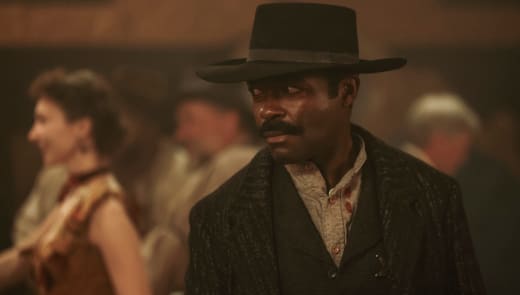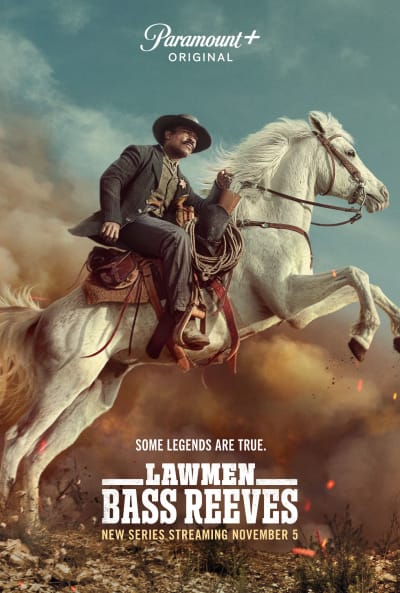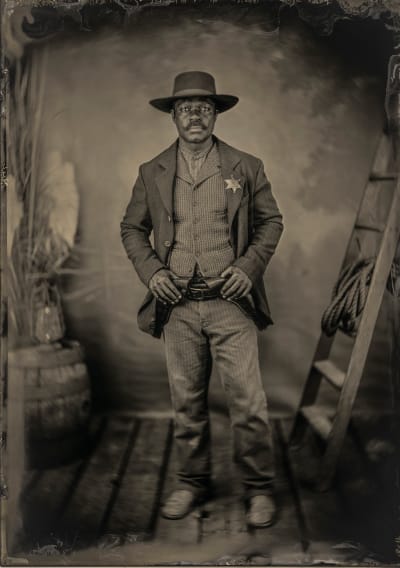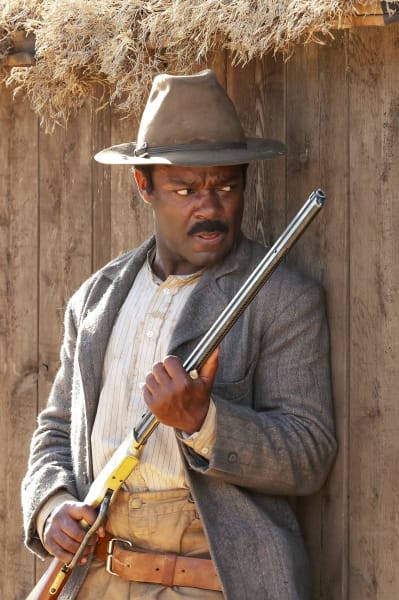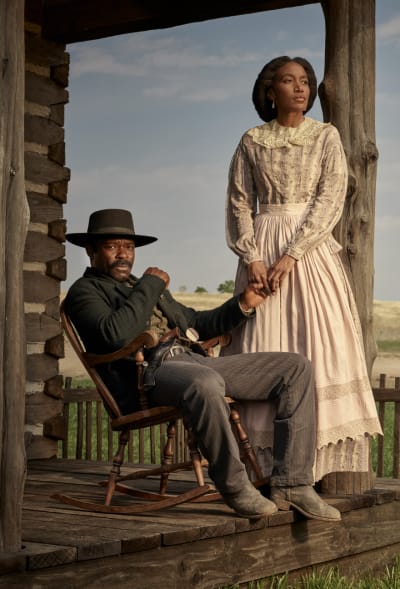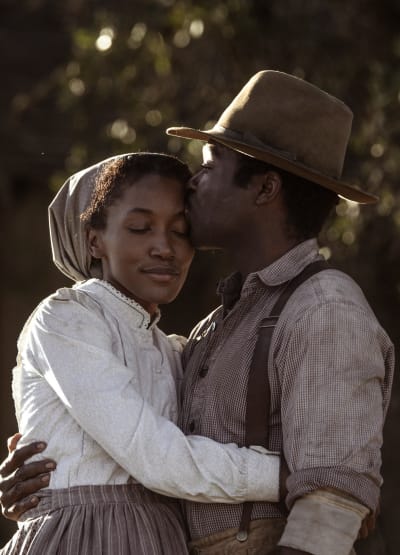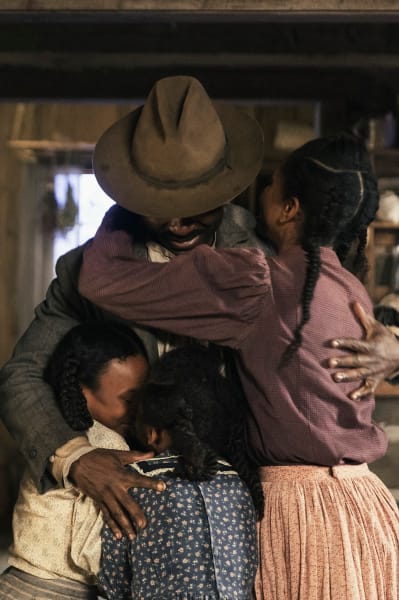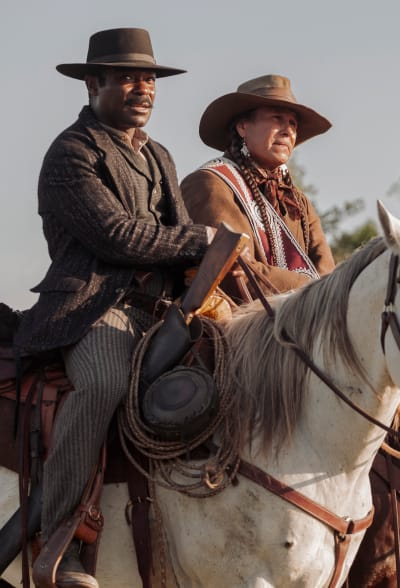Watching the story of the much-heralded US Marshall unfold in Lawmen: Bass Reeves is such a pleasure, and we had the chance to catch up with the series star and executive producer David Oyelowo for his thoughts on seeing this work come to life.
Oyelowo has championed this story for over half a decade, and he’s given much thought to the honor of bringing the story of justice, morality, and love for family to life.
We’ve shared our thoughts with Lawmen: Bass Reeves Reviews, and now you can hear from Oyelowo himself as he explains the qualities that make Bass Reeves, the man and the series, so worthy of exploration a century and a half later.
I am really enjoying Lawmen: Bass Reeves. I understand it was about a seven-year journey for you to bring this to the public. Can you talk a little bit about that?
It started in 2014, the journey to where we are right now. And I was approached by a producer back then with the idea of telling this story. I knew nothing about him. Having been educated a bit on him, I could not believe that a narrative centered on him had not yet been made or done.
And that’s where my obsession with rectifying that began. But little could I have known that we would be subjected to so much rejection. We took it out twice to virtually every company in our industry and were turned down twice, both in 2015 and then in 2017.
And yeah, I have Taylor Sheridan to thank for his reinvigoration of the Western and really creating an ecosystem with Paramount that could allow for the bells-and-whistles version of Bass Reeves to ultimately get told.
When you first saw the reemergence of the Western, were there just bells going off in your head like “This is finally the time?”
Not really, because it started with Yellowstone, which I didn’t really think of necessarily as a Western.
It wasn’t until 1883 came along that I thought, “Oh wow, okay. This is now something that I haven’t seen in a while, that scope, scale, the lyricism of the storytelling, and then, the embrace of the audience.”
Not long after that or during that, I should say, it was before that that I’d actually approached Taylor and 101 Studios about it, but that was the moment I thought, “I think we have a path here to getting this done.”
I think that Bass Reeves is a hero that we need today. And I’m wondering, what’s your take on his moral compass and how he weighs his decisions on that? It’s a benefit and a burden to have that kind of moral compass. How do you view that for Bass as the man and the lawman?
Well, I completely agree with you about the relevance of not only him but his way of doing things for today.
The Western is a beloved genre, but its tropes tend to be a mysterious guy whose moral compass is iffy and is sort of measured more by how many people he’s going to kill for the sake of whatever he deems right or not.
Whereas we are centering a man who’s very invested in his family, very invested in the notion of justice, has a transcendent moral character, considering he has not long come out of enslavement, where you could argue that’s the height of injustice in a sense. And yet, he goes on to be such a champion for justice.
He’s a listener, more than a talker, someone who really is so incredibly thoughtful about his approach and someone who, top of mind, is always his family and getting back to them. And to me those are all attributes I admire. They are facts in terms of what we know of him, certainly from my research.
Those are the qualities that I certainly admired in him and made me want to play him. And thankfully, that seems to be what the audience is gravitating to as well.
I really admire how Bass and Jennie come from a place of oppression and pain, and while they allow that to inform their decisions, they don’t let it define them, and they don’t let what happened to them negatively impact their future.
Why is that also a very prescient message today? What do you think people can learn from this show?
The reality is that, as time goes on, and you see this in the show, that oppression, that trauma of what they have come through, is impossible to shake. But they find a path for their love, for their family, for a healthy version of progression for them, given the time in America that that was.
We were in the time of Reconstruction. It was a time that was hopeful because someone like Bass Reeves could go on to be a Deputy US Marshal. The reality is that all came crumbling down with Jim Crow infiltrating everything. So we are catching them at a moment in time.
Things got a lot worse for Black people beyond this moment, and we are still seeing the effects of that today. To me, Bass and Jennie are indicative of what is possible when this country is the best of itself in a sense, and we’ve certainly seen a lot of the not-so-good.
In terms of how that’s pertinent for now, I think the fact that Bass chose justice over revenge, the fact that he chose to be a model citizen, despite America, at that time, not being a model nation, shows that it starts with the individual. And if everyone is doing that, that amounts to, ultimately, the country being the best of itself.
I also really enjoy their marriage. It’s very strong. I’m surprised that there are so few really strong marriages on TV where the couple are supportive of one another.
I love the scenes where Jennie picks Bass up when he’s feeling really defeated, and she points out not something that’s soft and fluffy but the reality of it. “Well, maybe you just need to learn this lesson.” And it always stops him in his tracks.
Please talk a little bit about how you see their marriage and what makes them such a special couple.
Yeah, I love that you picked that out. I’m a very happily married man, and I’m a great celebrant of marriage and love and family, and I agree with you.
We seldom see that on screen, even though it is the experience of many people, thankfully. I think, often with storytelling, because we’re always looking for, “What’s the point of conflict? Where’s the drama?” it’s easier to throw that into a marriage, to mine it for the drama.
But you do not need that with Bass Reeves. There’s plenty going on.
And even in their marriage, the reality is, as the show goes on, you will see the toll it takes on their marriage, but in order to really feel the stakes of that, you have to really establish how good of a marriage it is and was and why it’s worth fighting for.
So, that was something that, between myself, Chad Feehan, our creator and showrunner of the show, who’s also a happily married man but also understands the challenges of marriage, that was something that we were very focused on and wanted to have in the show.
We have a very short season. Obviously, it’s longer than a movie, but it’s shorter than a full series, and yet Bass has over 32 years as a lawman, not to mention his life and his family. Why is the limited series the right way to bring this story to life versus a longer form?
Well, you never want to outstay your welcome. If the folks want more, then that, I’m sure, will be a conversation. For me personally, there is a world in which Bass Reeves as a movie is what you are thinking about. But what’s amazing is to do an eight-hour movie of that story.
And you are right, there’s plenty of story left to be mined, but also, biopics or period pieces or anything focusing on a historical figure, they often are more potent when you zone in on one of the more storied parts of the life, as opposed to, “Okay, we are going to do the 32 years, whether people want it or not, whether interesting things were happening or not. You’re just going to sit there, eat your porridge, and be happy about it.”
We wanted to really take the approach of, “What’s the most fascinating part of his life to zone in on? And what’s the least amount of time we can have without outstaying our welcome?”
So eight episodes felt like the right amount of time to dig deep enough, but without, as I say, getting to the point where you’ve overcooked it.
You also attracted some of the industry’s most talented actors for this series. What’s it been like seeing this incredible cast, including yourself obviously, bringing this story to life?
To me, one of the things I’m most proud of, and of course, we have the big names in this show, but I’ve got to tell you, some of the young Black cast, Joaquina Kalukango, who plays Esme, Lauren E. Banks, who plays Jennie in this, Grantham Coleman, Justin Hurtt-Dunkley, Lonnie Chavis, who I directed in a film called The Water Man a while back, Demi Singleton, just phenomenal performances these young actors give.
The reality is they seldom have opportunities the likes of this. Shows like this do not get made every day. And the accent component, the period research that goes into it, these kinds of shows really are demanding on the actor.
To have that level of talent meet up with this wonderful challenge that we were all afforded is something that I’m just deeply, deeply proud of. Some of those actors I’ve mentioned — Yale, NYU, Julliard-trained actors — and you really feel that on the screen. Just magnificent.
New episodes of Lawmen: Bass Reeves drop Sundays on Paramount+
Carissa Pavlica is the managing editor and a staff writer and critic for TV Fanatic. She’s a member of the Critic’s Choice Association, enjoys mentoring writers, conversing with cats, and passionately discussing the nuances of television and film with anyone who will listen. Follow her on X and email her here at TV Fanatic.
